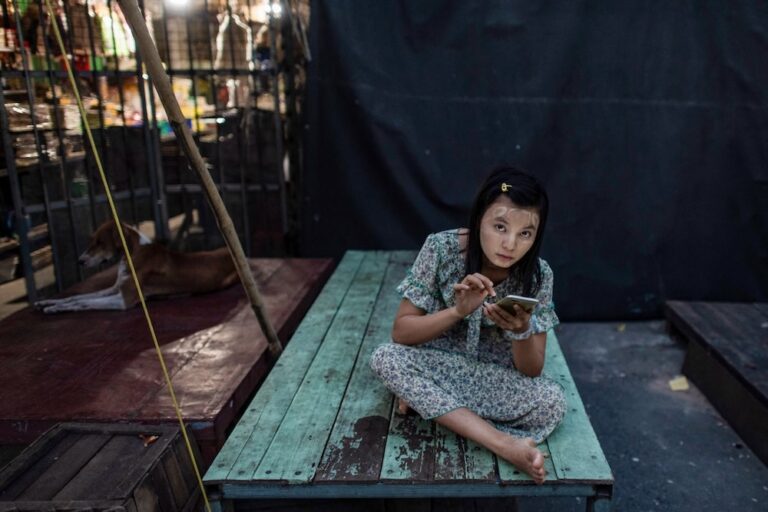Under the new government of President Thein Sein, the Press Scrutiny and Registration Division under the Information Ministry recently lifted censorship of some journals and eased their tight control over media coverage of certain subjects.
(Mizzima News/IFEX) – 3 April 2011 – As World Press Freedom Day is marked around the world, journalists claim Burma’s new government has not ushered in freedom of the press but superficial change is in the air.
In 1991, the United Nations declared May 3 as World Press Freedom Day to raise awareness about press freedom and remind all governments about the need for a free press.
Over the decades, Burma has suffered from strict censorship. But under the new government of President Thein Sein, the Press Scrutiny and Registration Division (PSRD) under the Information Ministry recently lifted censorship of some journals and eased their tight control over media coverage of certain subjects.
The Burmese authorities allow the publishing of private weekly journals but not private daily newspapers. All private journals have to pass articles through a censorship board led by military officers prior to publication. But as an experienced editor of a private journal told Mizzima, there has recently been a slight relaxation of censorship.
Earlier, the board imposed strict censorship on news and articles that included criticism of the education and health care systems, and the problems faced by farmers. Now, the board has eased up a little.
“Currently, we can use screaming headlines”, the editor said. “It’s been a long time since the censor board warned and ordered the editors to sign pledges. So, we feel relatively comfortable. The change is really obvious”.
Earlier, many reporters were routinely picked up and interrogated for taking news photographs. Now, taking news photographs and conducting interviews are relatively free, according to the editor.
Not everyone agrees. Another editor Mizzima talked to said there has been no signal for a free press.
“We still do not have freedom of the press”, he said. When journalists collected information from government ministries last month, they faced strict restrictions. “There is no obvious change. Change may occur gradually”, the editor said.
Few are old enough to remember a free press. After General Ne Win seized power in a coup in 1962, the Printers and Publishers Registration Law was imposed, coupled with censorship laws enacted during the British colonial period. These laws are still in effect.
A recent report compiled by the US democracy and rights watchdog Freedom House said that Burma remained on the list of the 10 worst countries for violating media freedom, at the bottom near North Korea. At least 17 journalists were in prison in Burma at the end of 2010, according to Freedom House. Most of them were charged under the Electronics Act, The Printers and Publishers Registration Law, The Emergency Provision Act and The State Protection Act.
Journalists in Burma have to work under difficult circumstances and have to act with care if they are not to fall foul of the draconian laws.
Just after pro-democracy leader Aung San Suu Kyi was released from house arrest at the end of 2010, news about her was allowed to be published in local journals, but later news on her actions was effectively banned.
Only last week, the censor board allowed some journals to publish photos of Aung San Suu Kyi at a ceremony to mark the 10th anniversary of the Free Funeral Service Society led by former actor, Kyaw Thu. But, the name of Kyaw Thu was not allowed to be mentioned in the news.
( . . . )


